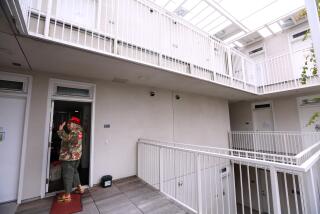Business Tax Reform Could Be Costly
The main proposals to reform Los Angeles’ business tax would cost the city $95 million annually, about a fifth of the revenue from the gross receipts tax, according to a report released Wednesday by the city’s Office of Finance.
Citing the stiff price tag, the agency agreed with city leaders that some of the reforms should be delayed until 2006, and even then should be phased in over five or six years to soften the blow to the city budget.
“It’s all general fund money that goes to pay for police and fire,” said Pamela Mooney, assistant director of the finance office. “It’s a large amount.”
Councilman Tony Cardenas, who heads a council panel overseeing the reform efforts, said the report shows that the city cannot afford to make all of the changes on the table.
“The only way we can do that is with a lot of trauma to a lot of programs in the city,” Cardenas said. “That’s not doable.”
The lost tax revenue would come out of a general fund budget of about $5.3 billion.
Mayor James K. Hahn said through a spokesman that the report gives city leaders the information needed to launch a debate on which reforms should be pursued and how quickly.
“This data will help the mayor develop a fiscally responsible tax reform that will help businesses and protect revenues that pay for police, fire and other vital services,” said Yusef Robb, a spokesman for Hahn.
Robb said the mayor supports going ahead next year with two of the reforms, which would exclude reporting bad debt as gross receipts and waive the tax for writers, directors and other entertainment industry workers if their gross receipts are $300,000 or less.
“At the end of the day, we think this will help keep Hollywood in Hollywood,” Robb added.
Tax reform has been lingering as an issue for at least eight years as business groups pressure city officials to do something to overhaul the system. Review of the reform proposals was undertaken because of concerns over Los Angeles businesses moving to cities, such as Burbank and Glendale, that do not charge a gross receipts tax.
Business leaders have threatened to make the issue a focus of the upcoming municipal elections if city officials don’t take action by Oct. 31.
Council members said they still hope they can adopt some reforms by that deadline.
The report conducted a financial analysis of a proposal to exempt from the tax all businesses with gross receipts of $100,000 or less, which would affect 61% of taxpayers, and another proposal to reduce the tax for all other firms by 15%.
Those two proposals and the bad debt and entertainment exemptions combined would cost $95 million if fully implemented.
“To lessen the revenue impact,” the mayor and council might want to phase in the $100,000 exemption over six years, the report said.
The agency recommended phasing in the change beginning Jan. 1, 2006.
“The bottom line is we have a document to move forward with,” Councilwoman Wendy Greuel said.
More to Read
Sign up for Essential California
The most important California stories and recommendations in your inbox every morning.
You may occasionally receive promotional content from the Los Angeles Times.











